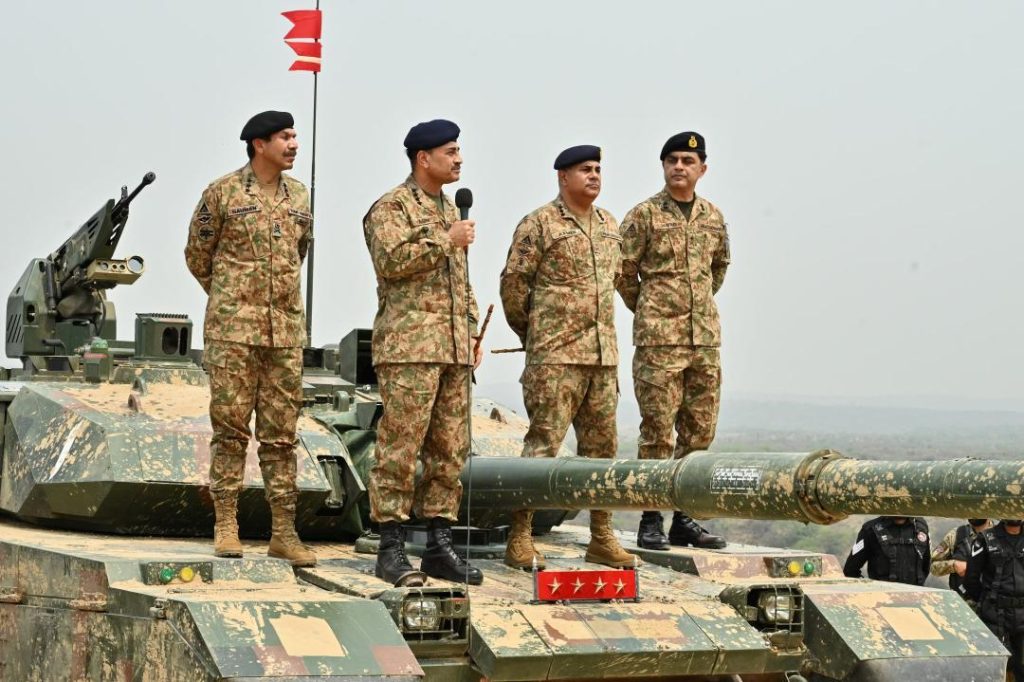
Asim Munir is Osama Bin Laden in a Suit: Former US Official
The recent appointment of Asim Munir as the Chief of Army Staff of the Pakistan Army has raised concerns among many, including a former Pentagon official who has made some scathing remarks about the new army chief. Michael Rubin, a former Pentagon official, has likened Asim Munir to Osama bin Laden, saying that the Pakistani army chief is “Osama bin Laden in a suit.”
Rubin’s comments come in the wake of Munir’s recent remarks about Pakistan’s nuclear capabilities and his threat to take half the world down with Pakistan. Munir had made these comments during a visit to the United States, where he met with US officials and delivered a speech at the Atlantic Council.
During his speech, Munir had said that Pakistan has the capability to take half the world down with Pakistan, and that the country would not hesitate to use its nuclear weapons if it felt threatened. This comment has raised concerns among many, particularly in the United States, where there is a growing unease about Pakistan’s nuclear program.
Rubin’s comparison of Munir to Osama bin Laden is a scathing one, and it highlights the concerns that many have about Pakistan’s military and its leadership. Osama bin Laden was the founder of the terrorist organization al-Qaeda and was responsible for the attacks on the World Trade Center in 2001, among other atrocities.
Rubin’s comments are not the only ones that have raised concerns about Munir’s appointment. Many have criticized the appointment, saying that it is a sign of the growing influence of the Pakistani military in the country’s politics. Others have expressed concerns about Munir’s ideology and his views on issues such as terrorism and nuclear proliferation.
In recent years, Pakistan has faced numerous challenges, including terrorism, economic instability, and political turmoil. The country has also had to deal with the aftermath of the 9/11 attacks, which were carried out by al-Qaeda and led to the US-led invasion of Afghanistan.
Pakistan has been a key player in the war on terror, and has played a significant role in the US-led efforts to defeat al-Qaeda and its affiliates. However, the country has also faced criticism for its handling of the conflict, and has been accused of not doing enough to combat terrorism.
Munir’s appointment as Chief of Army Staff has raised concerns among many in the US and other countries. Some have questioned his views on issues such as terrorism and nuclear proliferation, and have expressed concerns about his leadership of the Pakistani military.
In addition to his comments about Pakistan’s nuclear capabilities, Munir has also been criticized for his views on terrorism. In a recent speech, he said that terrorism is a global phenomenon, and that it is up to governments to take action to combat it. However, his comments have been criticized for being too vague, and for not providing a clear plan for how Pakistan will combat terrorism.
Rubin’s comparison of Munir to Osama bin Laden is a scathing one, and it highlights the concerns that many have about Pakistan’s military and its leadership. Osama bin Laden was the founder of the terrorist organization al-Qaeda and was responsible for the attacks on the World Trade Center in 2001, among other atrocities.
It is worth noting that Rubin’s comments are not the only ones that have raised concerns about Munir’s appointment. Many have criticized the appointment, saying that it is a sign of the growing influence of the Pakistani military in the country’s politics. Others have expressed concerns about Munir’s ideology and his views on issues such as terrorism and nuclear proliferation.
In conclusion, Asim Munir’s appointment as Chief of Army Staff of the Pakistan Army has raised concerns among many, including a former Pentagon official who has likened him to Osama bin Laden. Munir’s comments about Pakistan’s nuclear capabilities and his threat to take half the world down with Pakistan have raised concerns about his leadership of the Pakistani military and his views on issues such as terrorism and nuclear proliferation.



